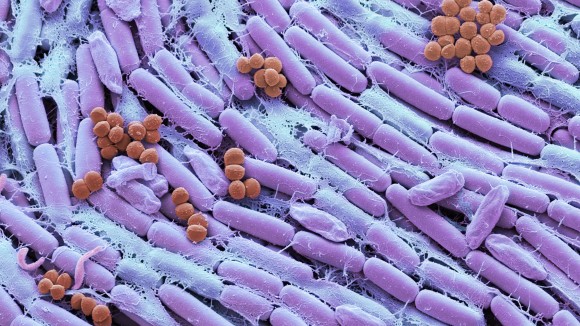 Khalid Beshir is an Assistant Professor at the London School of Hygiene & Tropical Medicine and his research centres on the diagnosis and drug resistance of infectious disease agents. Khalid’s research is particularly focused on understanding how pathogens escape drug treatment and evade diagnosis. At Scientific Reports, Khalid handles manuscripts on malaria and COVID-19 diagnosis as well as antimicrobial resistance, and genetic and genomic epidemiology of different pathogens. Dr. Beshir has been an Editorial Board Member for Scientific Reports since 2019.
Khalid Beshir is an Assistant Professor at the London School of Hygiene & Tropical Medicine and his research centres on the diagnosis and drug resistance of infectious disease agents. Khalid’s research is particularly focused on understanding how pathogens escape drug treatment and evade diagnosis. At Scientific Reports, Khalid handles manuscripts on malaria and COVID-19 diagnosis as well as antimicrobial resistance, and genetic and genomic epidemiology of different pathogens. Dr. Beshir has been an Editorial Board Member for Scientific Reports since 2019.
 Sascha Brunke is the deputy head of the department Microbial Pathogenicity Mechanisms at the Leibniz-Institute for Infection Biology and Natural Product Research – Hans Knöll Institute (HKI). His research on pathogenic fungi centers on the evolutionary adaptations of Candida species to the human host, and how these adaptations can be subverted for novel antifungal approaches. Prof Brunke has been an Editorial Board Member for Scientific Reports since 2019.
Sascha Brunke is the deputy head of the department Microbial Pathogenicity Mechanisms at the Leibniz-Institute for Infection Biology and Natural Product Research – Hans Knöll Institute (HKI). His research on pathogenic fungi centers on the evolutionary adaptations of Candida species to the human host, and how these adaptations can be subverted for novel antifungal approaches. Prof Brunke has been an Editorial Board Member for Scientific Reports since 2019.
 María Soledad Ramírez is an antibiotic-resistance researcher and Associate Professor of Biological Science at CSUF, CA, USA focuses on the dissemination and evolution of deadly bacterial pathogens, such as Acinetobacter baumannii. She is co-author of 112 peer-reviewed journal articles and has delivered more than 180 research presentations at scientific meetings. The Argentinian native is the recipient of the ICAAC Young Investigator Award from the American Society for Microbiology. She earned a doctorate in microbiology from the University of Buenos Aires. Prof Ramírez has been an Editorial Board Member for Scientific Reports since 2019.
María Soledad Ramírez is an antibiotic-resistance researcher and Associate Professor of Biological Science at CSUF, CA, USA focuses on the dissemination and evolution of deadly bacterial pathogens, such as Acinetobacter baumannii. She is co-author of 112 peer-reviewed journal articles and has delivered more than 180 research presentations at scientific meetings. The Argentinian native is the recipient of the ICAAC Young Investigator Award from the American Society for Microbiology. She earned a doctorate in microbiology from the University of Buenos Aires. Prof Ramírez has been an Editorial Board Member for Scientific Reports since 2019.
 Jaya Seneviratne is Associate Professor at the National Dental Centre, Singapore. He received his PhD from The University of Hong Kong where he studied the drug resistance mechanism of microbial biofilms. He subsequently completed the Immunology course from HKU Pasteur Institute (Hong Kong) and advanced courses in Proteomics Bioinformatics from EBI/Welcome Trust (UK) and Data Science Machine Learning School from Duke/Duke-NUS (Singapore). Prof Seneviratne has been an Editorial Board Member for Scientific Reports since 2017.
Jaya Seneviratne is Associate Professor at the National Dental Centre, Singapore. He received his PhD from The University of Hong Kong where he studied the drug resistance mechanism of microbial biofilms. He subsequently completed the Immunology course from HKU Pasteur Institute (Hong Kong) and advanced courses in Proteomics Bioinformatics from EBI/Welcome Trust (UK) and Data Science Machine Learning School from Duke/Duke-NUS (Singapore). Prof Seneviratne has been an Editorial Board Member for Scientific Reports since 2017.
 Amit Singh is an Associate Professor at the Centre for Infectious Disease Research at the Indian Institute of Science, Bangalore. He received his PhD from the University of Delhi, and has since worked at University of Alabama Birmingham, USA, on redox signalling and latency mechanisms in Mycobacterium tuberculosis (Mtb), and at the ICGEB in New Delhi where he studied the redox biology of human pathogens in order to dissect the role of redox sensitive transcription factors in Mtb pathogenesis. His current group’s current research is focused on how redox signalling controls the virulence of Mtb and HIV. Prof Singh has been an Editorial Board Member for Scientific Reports since 2016.
Amit Singh is an Associate Professor at the Centre for Infectious Disease Research at the Indian Institute of Science, Bangalore. He received his PhD from the University of Delhi, and has since worked at University of Alabama Birmingham, USA, on redox signalling and latency mechanisms in Mycobacterium tuberculosis (Mtb), and at the ICGEB in New Delhi where he studied the redox biology of human pathogens in order to dissect the role of redox sensitive transcription factors in Mtb pathogenesis. His current group’s current research is focused on how redox signalling controls the virulence of Mtb and HIV. Prof Singh has been an Editorial Board Member for Scientific Reports since 2016.

